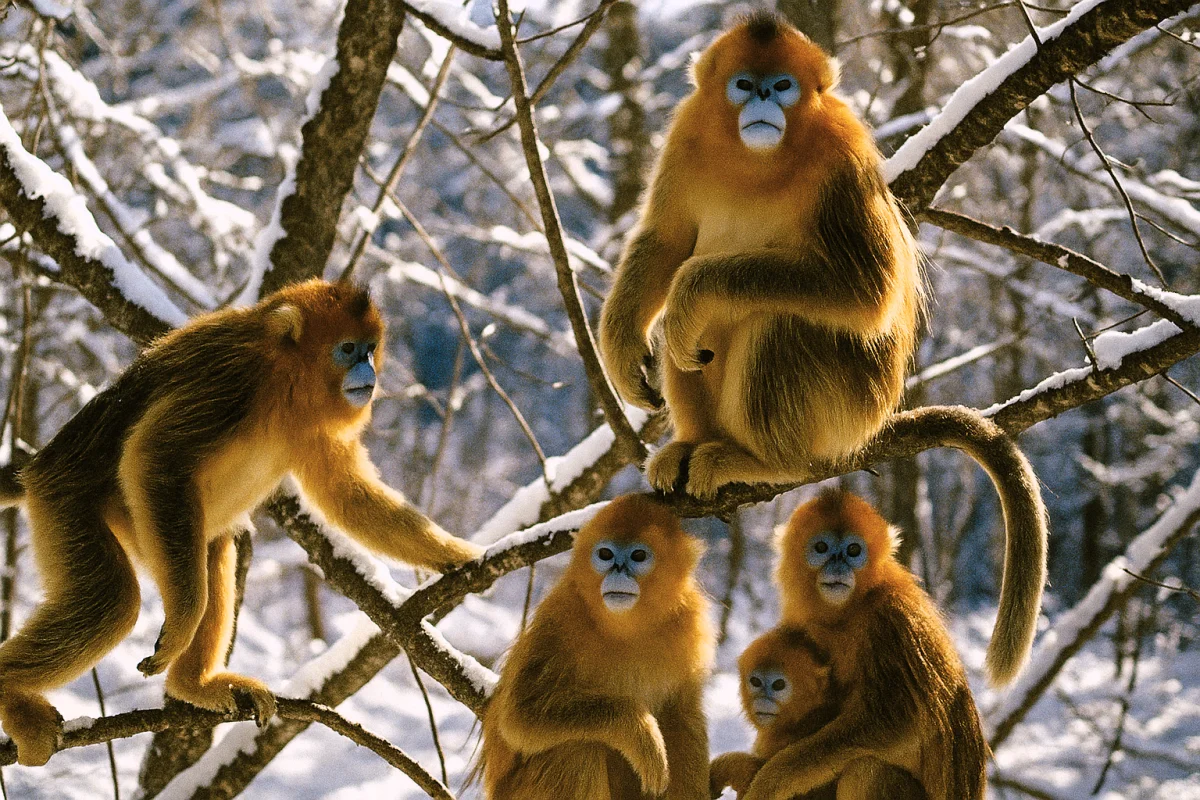Survivors of the Climate Crisis: Animals That Adapted
Climate change is no longer a distant threat—it is already reshaping ecosystems, shrinking animal habitats, and disrupting the natural balance. Yet, some species have shown remarkable resilience: they have managed to adapt to new environments and survive where others are slowly disappearing. This is a story of nature’s endurance and adaptation.
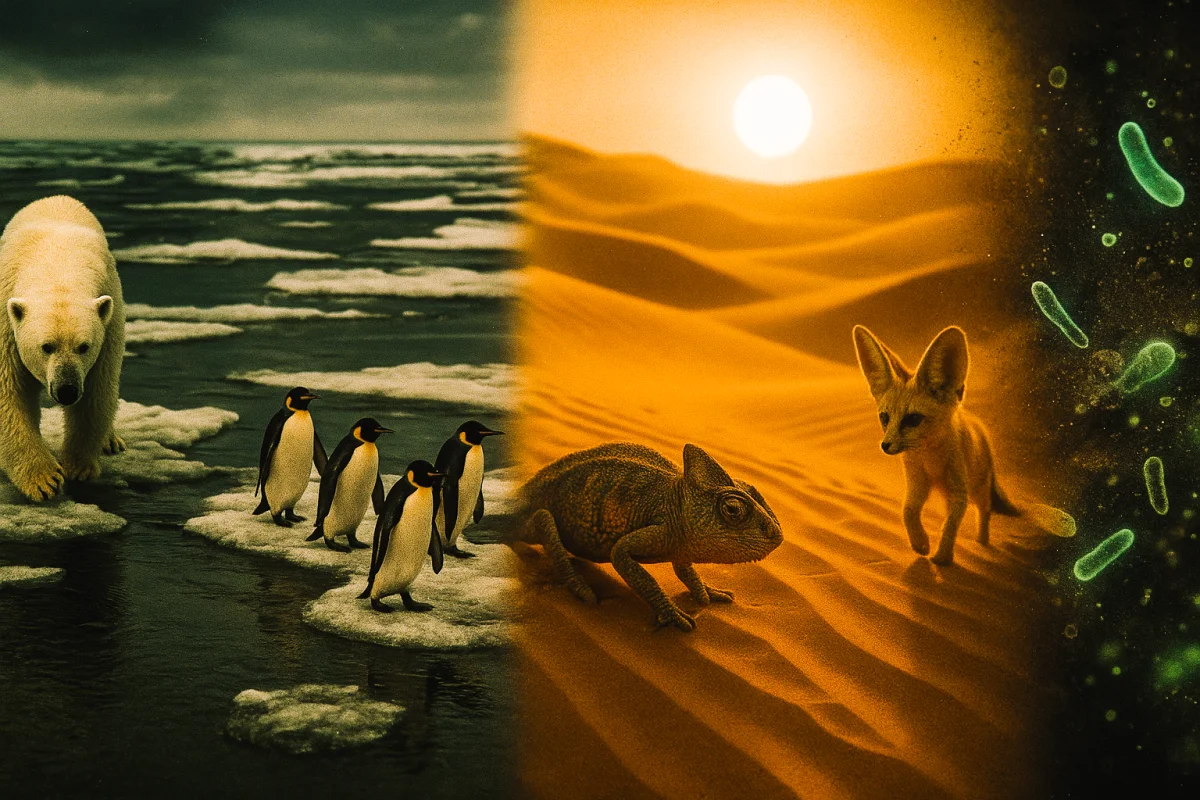
Polar Bears: Hunting Without Ice
Polar bears have become a symbol of the climate crisis. With the melting ice, their hunting strategies have changed: they are now forced to search for food not only by hunting but also by foraging along coastal areas. This adaptation gives them a temporary chance of survival.
Penguins and Seabirds
Changes in ice cover strongly affect penguins and other seabirds. Some species have moved further south, where food sources such as fish and krill are still available. For them, survival now depends on developing new migration strategies.
Desert Survivors
Chameleons, fennec foxes, and other desert animals remind us that nature has already created extraordinary examples of resilience. Their fur, coloration, and behaviors are adapted to withstand extreme heat, offering scientists clues about how other species might survive in future warming conditions.
Microorganisms: The Invisible Heroes
In the face of climate change, bacteria and microorganisms play a vital role. They adapt to soil, water, and even the atmosphere, helping maintain ecosystem balance and strengthening natural cycles.
Scientific Lessons
Scientists use these examples of adaptation to predict what awaits other species—and how humans might also learn from nature. Adaptation is not just a survival instinct but a continuous evolution of life itself.
Conclusion
The survivors of the climate crisis remind us that nature always finds a way to carry life forward. But the question remains: can we, as humans, demonstrate the same ability to adapt as animals do?
👉 What do you think—will humans ever adapt to climate challenges the way nature does?
✍ Article Author
- Registered: 26 July 2025, 15:34

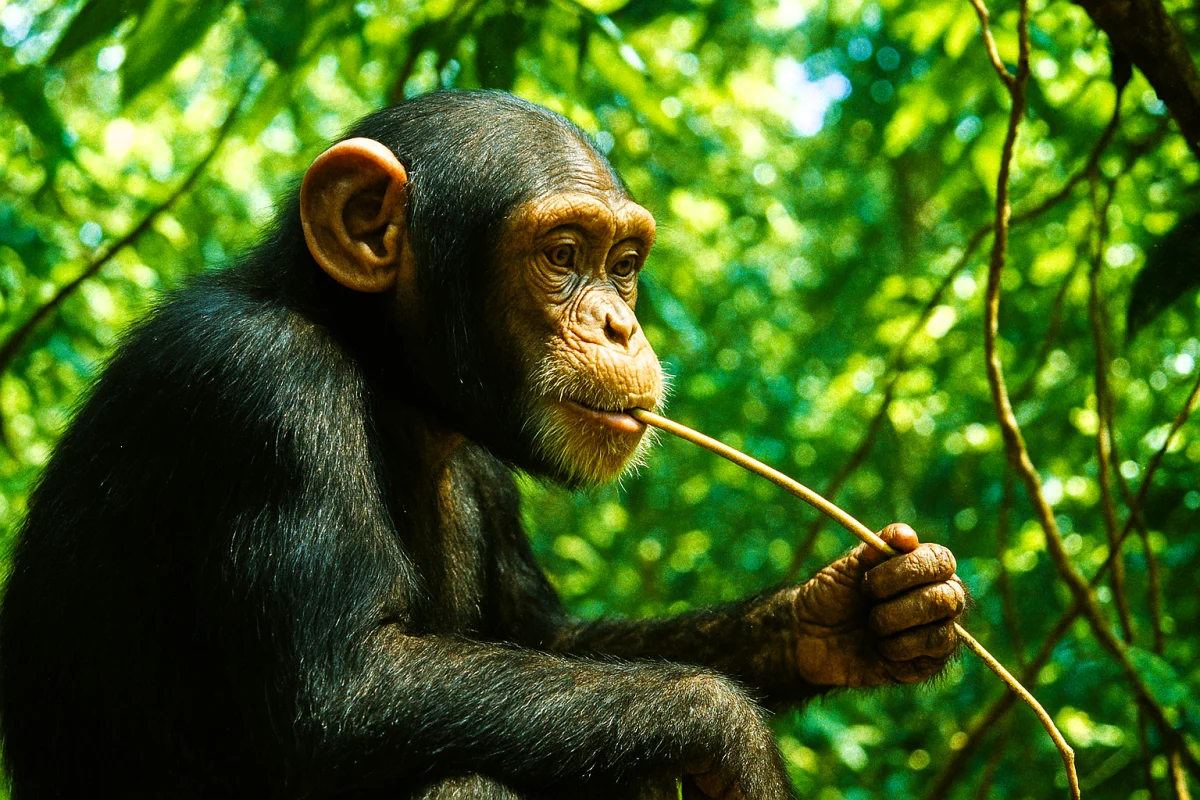
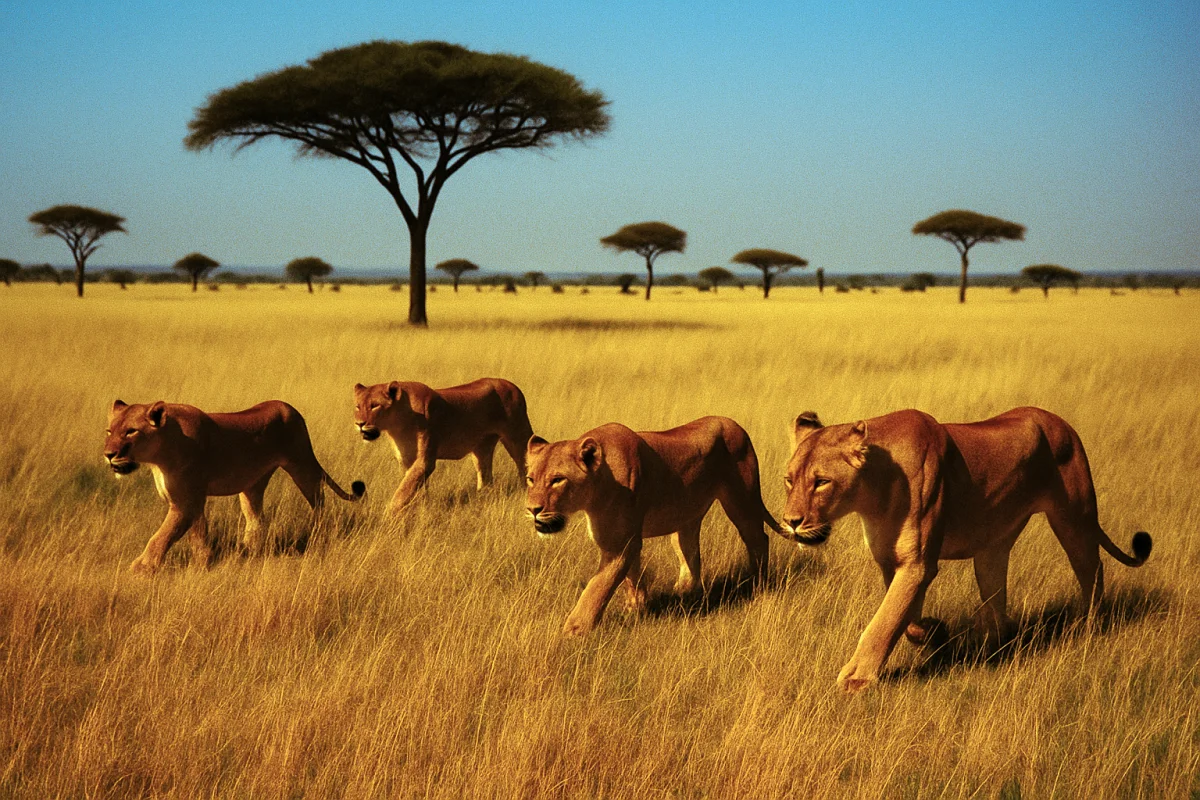
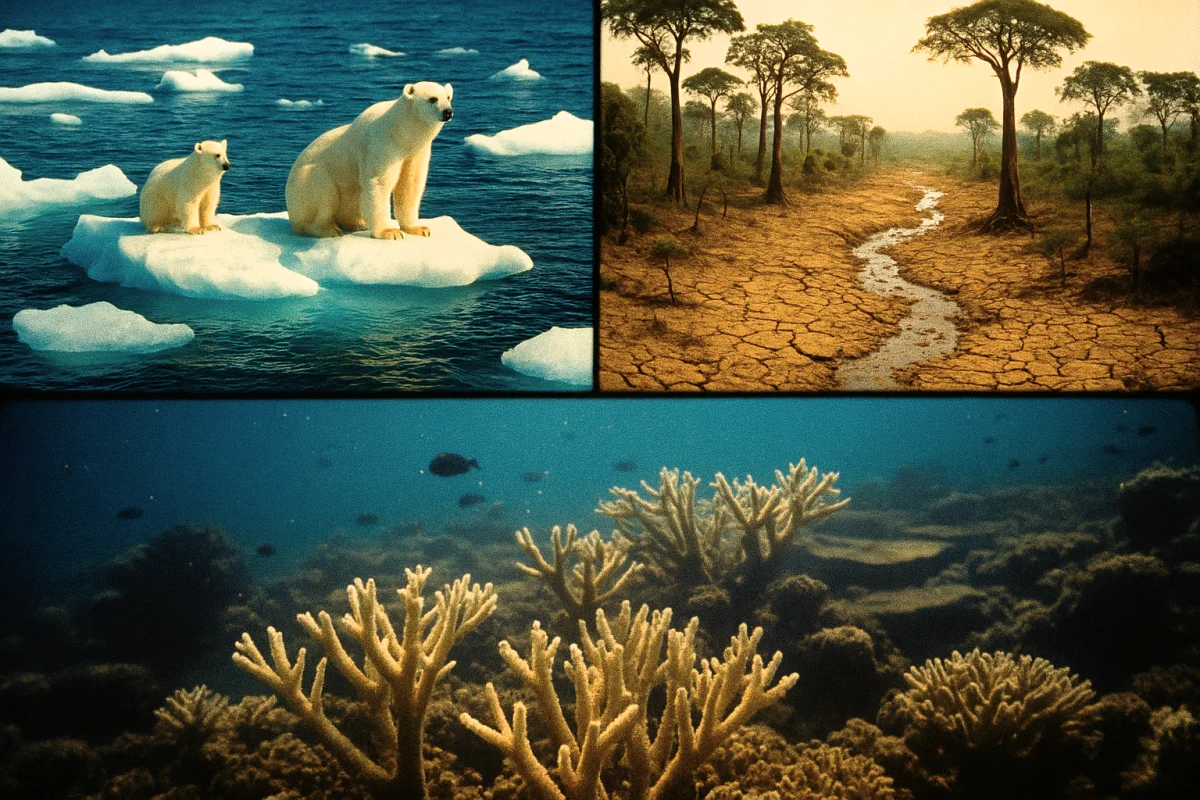
 Silent Cat 🐾
Silent Cat 🐾